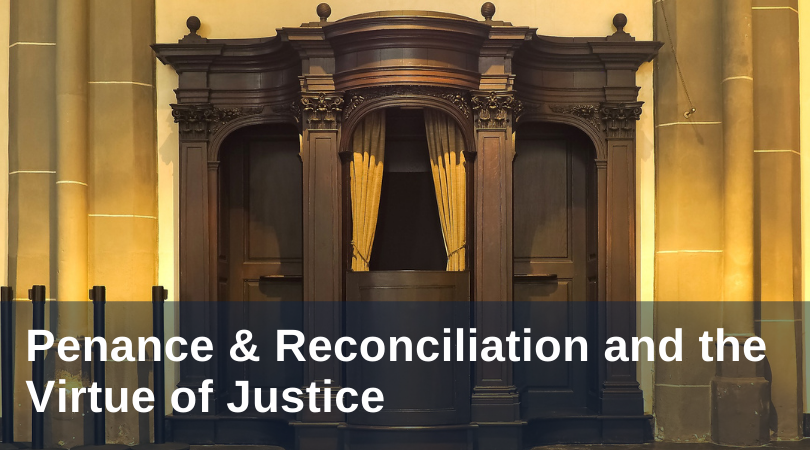
Ash Wednesday marks the beginning of a 40-day pilgrimage toward the joy of the Resurrection. On this day, millions of Christians around the world will hear the words, “Remember that thou art dust, and unto dust thou shalt return,” as they are marked with the dust of ashes. Ashes are a sign of pride—we are marked for Christ; and of humility—we are dust, we cannot save ourselves, we need a Savior. More than a dismal season marked by restricted freedoms, Lent offers us the opportunity to come home to Christ. We are given the time and space to examine the parts of our heart that remain stony, and, with the help of our Lord, turn them into flesh. We are presented with a chance to walk in solidarity with Christ as he journeys to the Cross, so that we too might die to self in order to experience new life.
A central theme during Lent is that of penance and reconciliation, as evidenced by the alternative phrase that can be used on Ash Wednesday: “Turn away from sin and be faithful to the Gospel.” As much as we ought to see ourselves in the faces of Mary, Mother of Jesus, Mary Magdalene, Mary of Bethany, and Simon of Cyrene, we must also do the difficult work of examining the ways in which we are pharisaical, the times we betray like Judas and deny like Peter, the moments in which we join the crowd and shout, “Crucify!” Identifying these traits within ourselves can be painful, but the true labor comes from extracting the weeds from the soil of our heart and then ensuring that the soil remains healthy. It is work we cannot do alone; otherwise, Lent would become merely an annual project in self-improvement. Rather, it is work that needs to be brought to the confessional so that we can receive the necessary healing and grace.
Here, in the Sacrament of Penance & Reconciliation, we “obtain pardon from God’s mercy for the offense committed against him, and are, at the same time, reconciled with the Church which [we] have wounded by [our] sins, [the Church who] by charity, by example, and by prayer labors for [our] conversion” (CCC, §1422). In sin, we have turned from the virtue of justice, “the moral virtue that consists in the constant and firm will to give their due to God and neighbor” (CCC, §1807), as we have hurt or broken harmony in our relationships with God and others. Thus we must turn towards this virtue, for to God and to our neighbor justice is due.
This turn toward justice is facilitated through the Sacrament of Penance & Reconciliation, where we are not only offered absolution, but are also given penance—a means to rectify the wrongs we have committed. Indeed, justice requires this. “Absolution takes away sin, but it does not remedy all the disorders sin has caused. Raised up from sin, the sinner must still recover his full spiritual health by doing something more to make amends for the sin: he must ‘make satisfaction for’ or ‘expiate’ his sins. This satisfaction is also called ‘penance’” (CCC, §1459).
Despite my love of the sacrament, and the countless times I have frequented it, there is still a drop in my stomach every time I wait in line, my hands still get sweaty, my heart rate still quickens. There have been moments when I have spent more time finding ways around confessing certain sins than I have spent examining why the sin hurts my heart so much, why saying it aloud is so difficult. It is in these moments that I have been reminded by my closest friend that I am not confessing my sins to the priest; he is simply a mediator. In reality, I am confessing them to Jesus—the perfect judge who is merciful and just, who offers forgiveness and freedom instead of a sentence and chains.
Healed by Christ’s grace, as recipients of his perfect forgiveness and justice, our hearts should be moved to go into the world and sin no more, to avoid whatever leads us to sin. But we should also be resolved to commit ourselves to modeling the justice of God to our neighbors. This includes offering forgiveness. In the Lord’s Prayer, we boldly petition the Father to “forgive us our trespasses as we forgive those who trespass against us.” This Lent, may we work to become a person who pursues truth and justice, but who simultaneously never tires of offering forgiveness, for the Father never tires of offering it to us.
Like what you read? Submit your email below to have our newest blogs delivered directly to your inbox each week.
Featured by Michael Gaida via Pixabay


